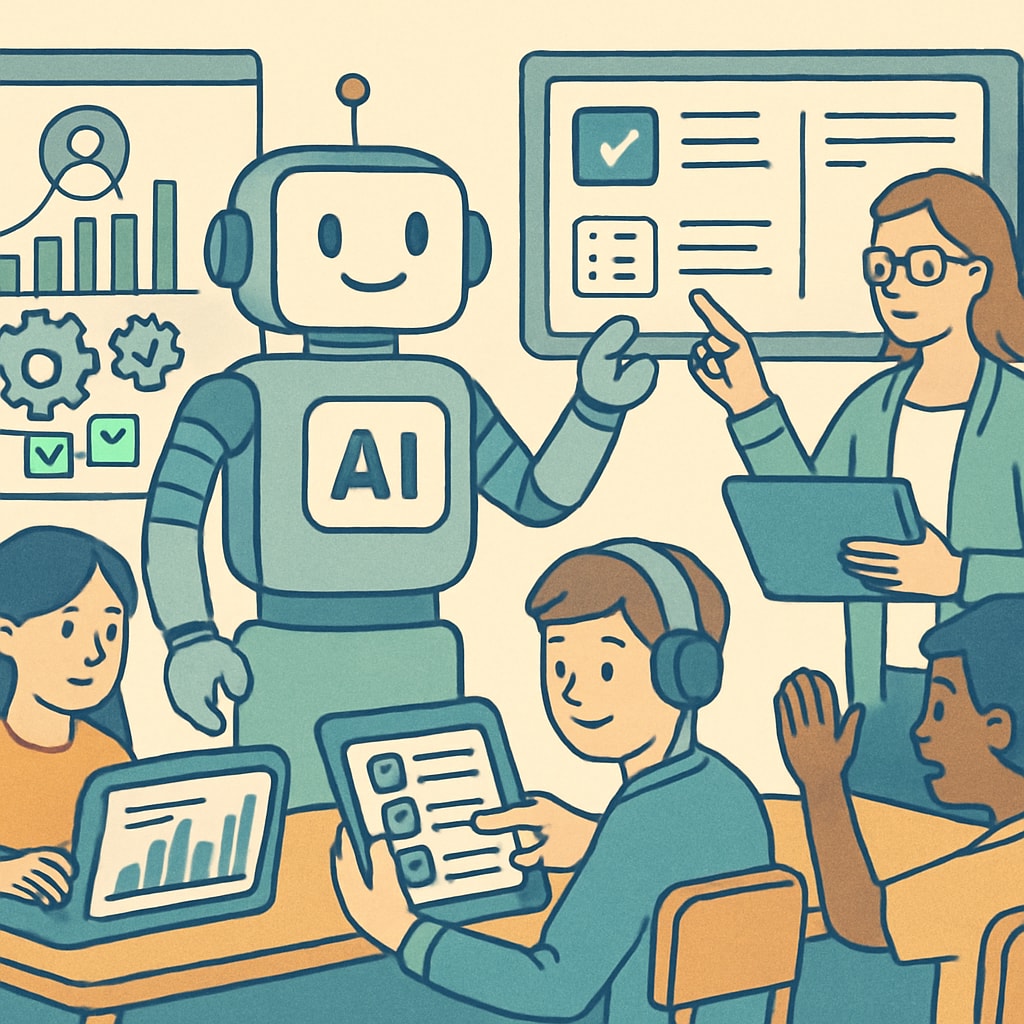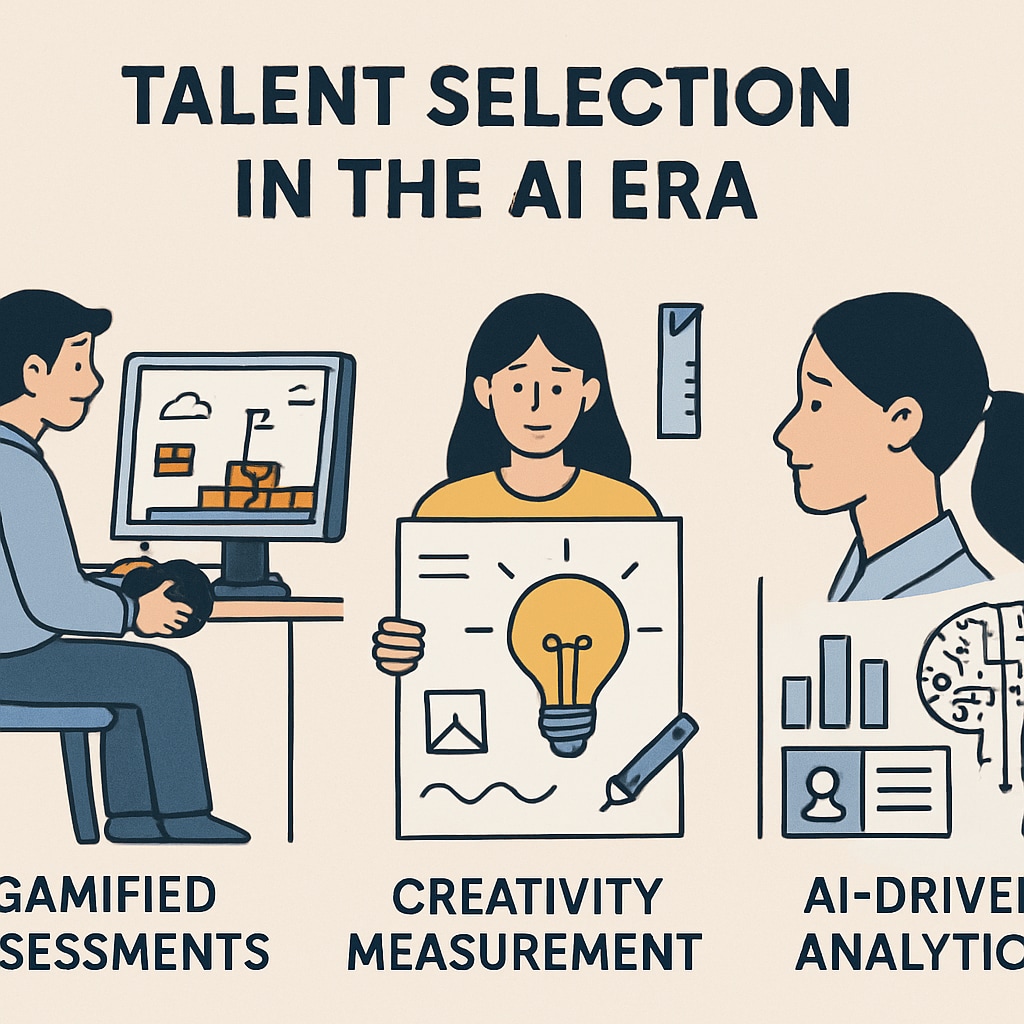Artificial intelligence, competitive exams, and talent selection are increasingly interconnected as technology evolves. The rapid advancement of AI technologies is fundamentally altering traditional methods of evaluating academic performance and selecting talent. In the AI-driven world, K12 education faces a unique challenge: how to adapt competitive exams to remain relevant, equitable, and effective in identifying true potential.
Why Artificial Intelligence Demands Change in Competitive Exams
The integration of AI into education has brought both opportunities and challenges. On one hand, AI enables personalized learning experiences, adaptive assessment tools, and efficient data analysis to support students. On the other hand, traditional competitive exams often fail to account for these advancements, relying on outdated methods that may not accurately reflect a student’s capabilities in an AI-enhanced environment.
For example, AI tools such as ChatGPT and automated problem-solving platforms have made accessing advanced knowledge easier. Students can now solve complex problems or write essays with minimal effort, which raises concerns about the authenticity of their exam performance. As a result, educators and policymakers must explore new ways to assess critical thinking, creativity, and adaptability—skills that AI cannot easily replicate.

Challenges in Maintaining Fairness and Equity
One of the biggest challenges posed by AI in competitive exams is maintaining fairness. Current examination models often reward memorization and formulaic problem-solving, which can be easily assisted by AI tools. This creates an uneven playing field, favoring students who have access to advanced technologies while disadvantaging others.
To address this issue, competitive exams must evolve to evaluate intrinsic qualities like resilience, collaboration, and ethical decision-making. These attributes are crucial for success in the AI era and cannot be easily “outsourced” to machines. Moreover, educators should consider implementing standardized guidelines on the use of AI tools to prevent misuse and ensure equitable access for all students.
Reimagining Talent Selection in the AI Era
Talent selection in the AI era requires a shift in focus. Traditional exams often emphasize academic knowledge, but future-ready skills such as problem-solving, emotional intelligence, and innovation are becoming more important. AI can play a transformative role in identifying these qualities, but it must be used responsibly.
For instance, AI-driven assessments can analyze patterns in students’ learning behaviors, offering deeper insights into their strengths and weaknesses. Gamified platforms and scenario-based evaluations can also provide opportunities to measure creativity and strategic thinking. These innovations can complement traditional exams, creating a more holistic approach to talent identification.

Steps Toward Reforming K12 Competitive Exams
The journey to reform K12 competitive exams requires collaboration between educators, policymakers, and technology experts. Below are some key steps to achieve meaningful change:
- Redefine assessment criteria: Shift from rote learning to evaluating critical thinking, creativity, and emotional intelligence.
- Integrate AI responsibly: Use AI tools to enhance assessments while ensuring ethical guidelines and equitable access.
- Focus on inclusivity: Design exams that accommodate diverse learning styles and minimize technology-driven disparities.
- Promote professional development: Train educators to leverage AI in teaching and assessment to align with modern demands.
Educational systems must embrace innovation while staying rooted in principles of equity and fairness. By rethinking competitive exams, we can create an environment that nurtures well-rounded individuals prepared for the challenges of the AI era.
Conclusion: The intersection of artificial intelligence, competitive exams, and talent selection calls for urgent action. Policymakers and educators must prioritize reform to ensure that K12 education evolves with technological advancements. By adopting fair, inclusive, and forward-thinking examination models, we can better identify and cultivate true talent, laying the foundation for a brighter future.
Education in the Age of AI on Wikipedia and Artificial Intelligence on Britannica provide additional insights into the impact of AI on education systems globally.


